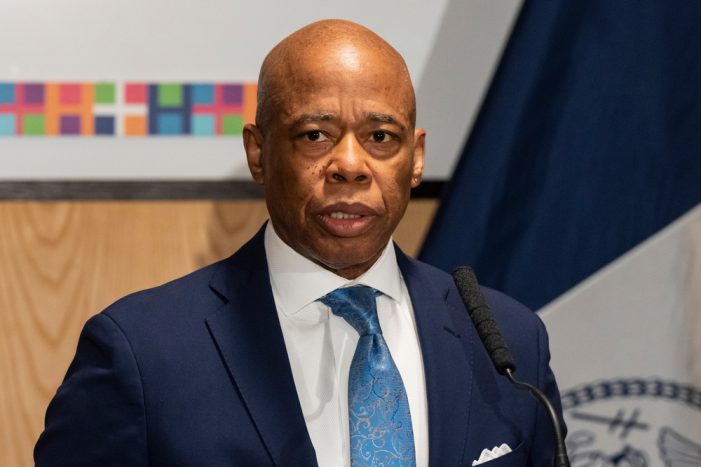By Chris Tobias | Editorial credit: Lev radin / shutterstock.com
On April 2, 2025, U.S. District Judge Dale E. Ho dismissed the federal corruption case against New York City Mayor Eric Adams with prejudice, preventing the possibility of refiling the charges in the future. This decision concludes a legal saga that has significantly impacted Adams’ political career and raised questions about the interplay between judicial proceedings and political considerations.
Background of the Case
In September 2024, Mayor Adams was indicted on charges including bribery, fraud, and soliciting illegal foreign campaign donations. The indictment alleged that Adams accepted over $100,000 in benefits from Turkish officials and businessmen during his tenure as Brooklyn Borough President. In return, he purportedly facilitated the opening of a Turkish consular building without proper fire inspections. Adams pleaded not guilty, asserting that the charges were baseless and politically motivated.
Judicial Decision and Its Implications
Judge Ho’s dismissal “with prejudice” ensures that the charges cannot be reinstated. This ruling came after the Justice Department, under the Trump administration, requested the dismissal to enable Adams to support federal immigration enforcement efforts without the encumbrance of ongoing legal proceedings. The judge expressed concern that dismissing the case without prejudice could create a perception that Adams’ freedom was contingent upon his alignment with the administration’s policies, potentially compromising his independence as mayor.
Related News:
Political and Legal Repercussions
The dismissal has elicited varied reactions within the political and legal communities. Several prosecutors, including acting U.S. Attorney Danielle Sassoon, resigned in protest, citing ethical concerns over the perceived politicization of the Justice Department. Critics argue that the move undermines the impartiality of federal prosecutions and sets a troubling precedent where legal outcomes may be influenced by political considerations.
Conversely, Adams and his supporters contend that the dismissal validates his claims of innocence and allows him to focus on governing without the distraction of a protracted legal battle. With the Democratic mayoral primary approaching, the resolution of this case removes a significant obstacle from Adams’ path as he seeks re-election.
Conclusion
The dismissal of the federal corruption charges against Mayor Eric Adams underscores the complex intersection of law and politics. While the legal proceedings have concluded, the broader implications regarding prosecutorial independence and the potential influence of political agendas on judicial matters remain subjects of ongoing debate. As Adams continues his tenure and campaign for re-election, the ramifications of this case are likely to resonate within New York City’s political landscape for the foreseeable future.

